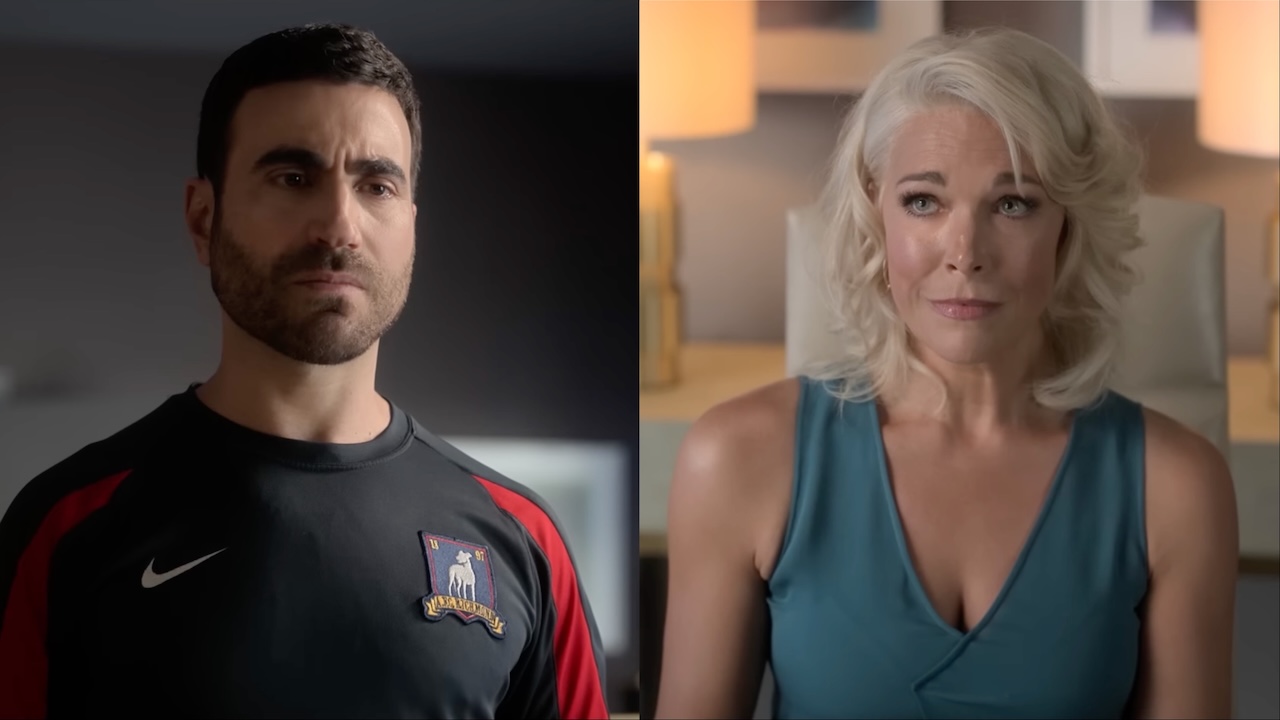14 Game Franchises That Got Way Worse
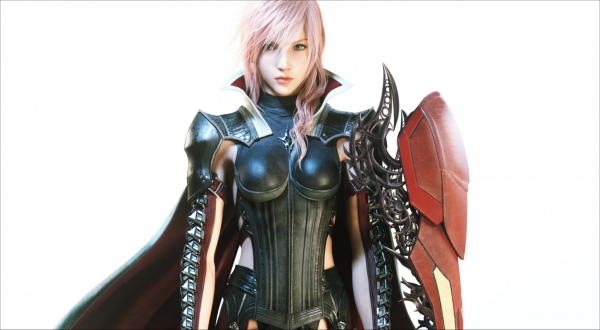
Your Daily Blend of Entertainment News
You are now subscribed
Your newsletter sign-up was successful
It's easy to think about franchises that got way better in time. Gran Turismo probably comes to mind or Just Cause. There's the DiRT series and Street Fighter and Mortal Kombat. These games have shown excellence in their evolution throughout the years.
Not every franchise gets better with age, though. Some games get sequels that kill all their momentum, and some games slowly decline over time due to mediocrity. This list takes a look at 14 franchises that got way worse, either with a franchise-killing sequel or just a slow decline in quality over the years.
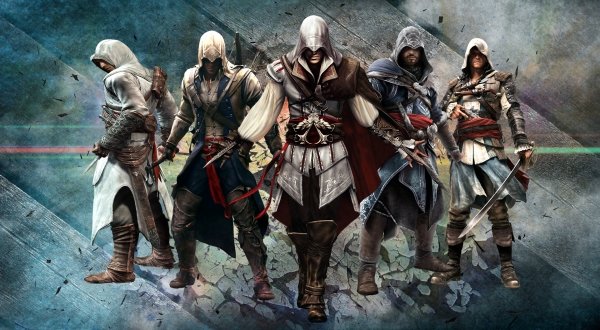
Assassin's Creed
When did it start? What happened? How did it go so wrong? Assassin's Creed was probably the most promising new IP from the seventh generation of gaming, if not the most ubiquitous. The game sells millions of copies each year and constantly tries to push the envelop in one area or the next.
Unfortunately, Ubisoft became locked in an annual outing of the series that has resulted in lower and lower quality releases each year. Assassin's Creed Unity was a breaking point for some gamers who vowed never to return to the series again. A convoluted story, gameplay that went from innovative to gimmicky, and pacing that eventually turned into a grind (with added microtransactions) makes Assassin's Creed nearly worse then Call of Duty at this point, because at least in the latter's case they have been trying to innovate.
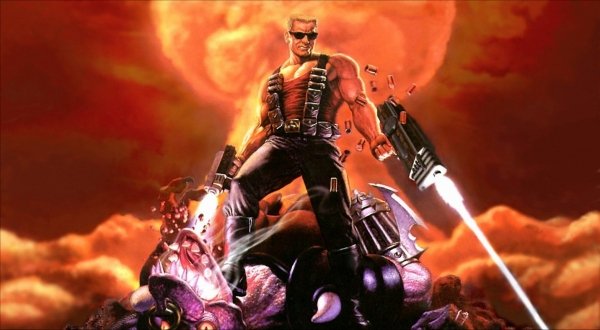
Duke Nukem
The first Duke Nukem was like a slightly more competent (or slightly less original) version of Commander Keen. It wasn't that good a game, the graphics were pretty terrible and the gameplay was subpar. However, Duke Nukem 2 was a huge step up over the first one and Duke Nukem 3D was a game-changer for the series.
Your Daily Blend of Entertainment News
Unlike Assassin's Creed 3D Realms took too long getting out Duke Nukem Forever and the game ended up in development hell. Just before Forever released there was a series of spin-off games but none of them were as good as Duke Nukem 3D. Even after Gearbox managed to salvage the license they still couldn't turn around poor 'ole Duke's luck and the series now languishes as a property with potential and no good direction.
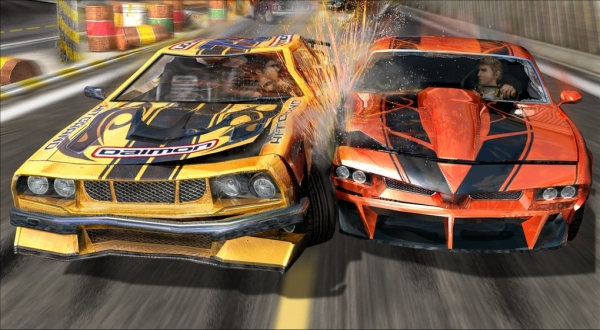
FlatOut
After Destruction Derby disappeared off the face of the Earth, Bugbear Entertainment's FlatOut seemed like a great addendum to the derby-racing genre. It featured rigid body deformation, the likes of which were not seen in any game quite to the extent or quality that it had, and it had some ridiculous rag-doll mini-games that kept gamers endlessly entertained.
The concept nearly seemed played out before it really got started and FlatOut 2 seemed to both advanced the concept of the original and yet stagnate in gameplay compared to the original. By the time the third FlatOut game surfaced there wasn't much else to do and deformable cars was no longer the new hotness. There were still some spin-offs made for the game that didn't do so great and eventually Bugbear took their expertise to the indie racing sector, leaving their beloved property behind in a pit for the forgotten.
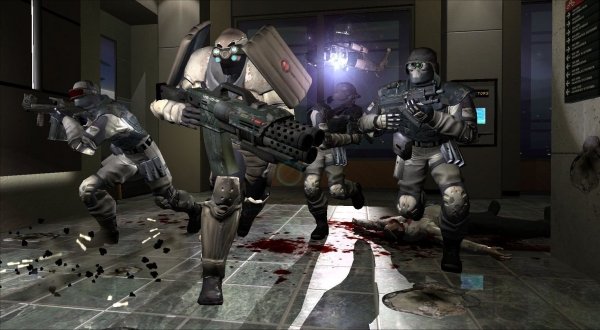
F.E.A.R.
Monolith Studios' F.E.A.R. was one of those games with a lot of potential. It looked like it was going to be the new horror-action franchise to beat. It mixed great graphics with top-notch special effects and lots of horror-themed thrills.
After gaining a lot of momentum with the first two games, the third title began losing steam with its third entry. The series completely fell off the cliff by the time F.E.A.R. Online came into the picture and after Aeria Games and Warner Bros., closed up the free-to-play shooter, the series has been dormant ever since. It was a brand with a lot of potential that should have been used sparingly but overexposure led to a quick death of the series.
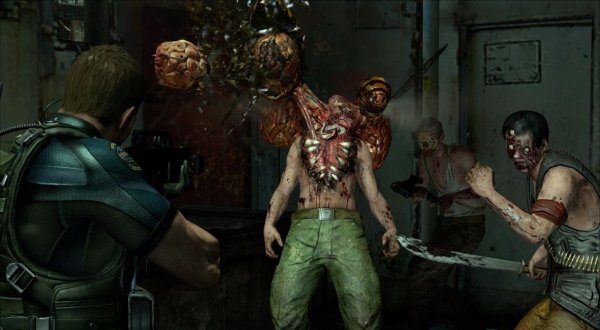
There are very few game series on this list that will make you shake your head more than Resident Evil. This franchise has always had so much potential and yet has been misused over the years to the point where you can literally see the decline in quality and direction.
After hitting it out of the park with the first three Resident Evil games, and then reinventing the series with Resident Evil 4, the series began slipping... and slipping badly. There was a stronger focus on the action as opposed to the surviving and horror, and the plots became more and more convoluted and comical. Capcom also started pumping out more and more spin-offs that did little else but devalue the series over time. At this point the only thing gamers want out of Resident Evil is a remake of the second game.
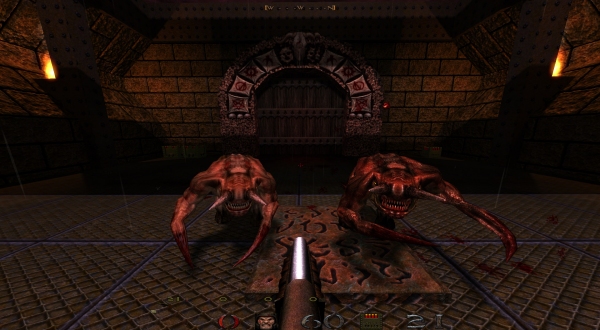
Quake
Quake also had a strange rise to fame. It was one of the very first fully 3D rendered first-person shooters, from the character models to the weapons to the special effects and the levels. No 1D sprites or hand-drawn weapons in the player-view. Quake set a standard that as a brand it couldn't keep up with. It was a strange turn of events for the sci-fi stone-and-puzzle shooter.
Quake eventually moved into multiplayer territory where it gained most of its fame with Quake 3: Arena and Quake Live. But it tried getting back to its story roots that were introduced in Quake 2 when id Software released Quake 4. But identity was always a problem with Quake and it had a tough time trying to re-establish (or even fully establish) its own identity. It wasn't quite Doom and it wasn't quite Hexen, it was just a 3D amalgamation of the two that built its fame on being one of the first 3D FPS and introducing multiplayer rocket-jumping.
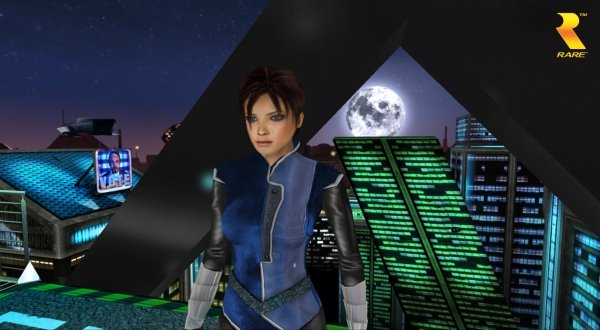
Perfect Dark
Rare really hit a gold mine with Perfect Dark on the N64. While the game didn't necessarily sport the most advanced graphics at the time, it really hit a stride with combining brand new gameplay techniques in the first-person genre that no other game was doing, such as stealth, knocking out enemies with melee attacks and disarming foes without killing.
While the first game pushed boundaries the series hit a snag from then on, rapidly declining after the Xbox 360 launch title Perfect Dark Zero came about. It was a prequel that was supposed to explain a lot of Joanna Dark's world before she became an agent but it was all messed up. The game lost its cyber-noir edge for a goofy, bright world instead and the series never got back on track since.
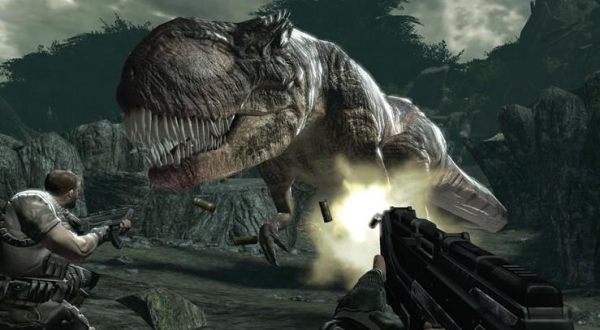
Turok
Now here's a game series that had so much potential when it first started but then rapidly declined after the release of the second game. Turok was one of the rare series that introduced players to first-person platforming and a minimalist HUD. That's not to mention that it featured some awesome dinosaur battles and great graphics during its early franchise tenure.
After a third game that killed off Turok the main character at the start of the game (yes they killed the main character) the series lost all its steam (and rightfully so). There were attempts to revitalize the series with a reboot but the whole thing stunk to the high heavens as it tried tapping into the “dark” and “gritty” theme that was pervasive throughout seventh gen. It's safe to say that the reboot didn't take too well and Turok remains a franchise fossil.
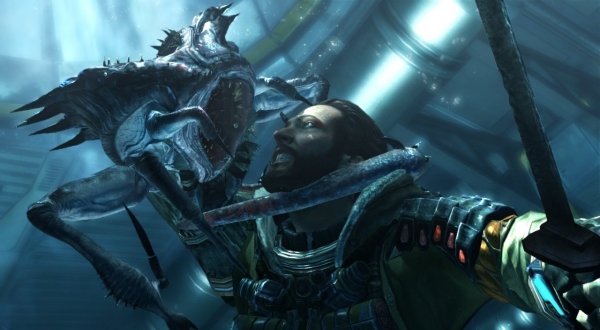
Lost Planet
Capcom had such an awesome concept in Lost Planet. The first game was a real boon to innovation in the third-person shooter genre. It was a survival game where players weathered frigid conditions and fought massive monsters. It was great. The sequel focused more on character customization and even bigger monsters, and while it was divisive it was still hailed as a fun game.
Capcom took a completely different direction with Lost Planet 3, removing all of the customization features and massive weapon line-up from the second game. They also got rid of all the different mechs and battle suits from the second game as well. What we ended up with was a pared down third-person shooter that relied on a ho-hum story and uninteresting combat. Lost Planet has been lost and dormant ever since.
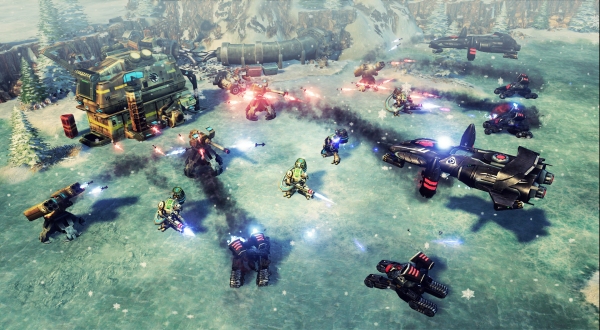
Command & Conquer
Command & Conquer was really big during the turn of the century. It was the real-time strategy game that other real-time strategy games always tried to emulate. It set the standard for military RTS titles and featured a mix of saucy fan-service with FMV sequences and hard-as-nails campaigns.
The popularity of the series eventually toppled in on itself, as the fourth game was ill-received, a first-person shooter spin-off died in its tracks and a free-to-play version of the game could gain about as much traction as a Corvette in a Manhattan blizzard. After Westwood departed from the series EA threw everything at the wall and nothing stuck. The series is another one that's been dormant since the free-to-play game shutdown.
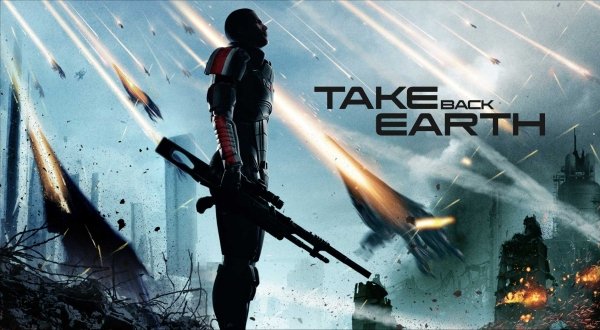
Mass Effect
Mass Effect is still a game on the list with a lot of potential and a strong following. The following isn't quite as big as it used to be but it's big enough. BioWare set a huge standard with the original Mass Effect and followed it up with the equally successful Mass Effect 2. There were some minor complaints about the game here and there but for the most part they were solid sci-fi RPGs.
It seemed like the series was poised to become this generation's Star Wars. However, a rushed development cycle, a hacked ending and frustrated fans led Mass Effect 3 down a path to which it could not return. EA and BioWare are attempting to start a new trilogy to wipe the bad taste out of the mouths of gamers, but the damage may have already been done. The interest is still there for the new game but it's no where near at the levels of hype that was present when Mass Effect 3 was first announced.
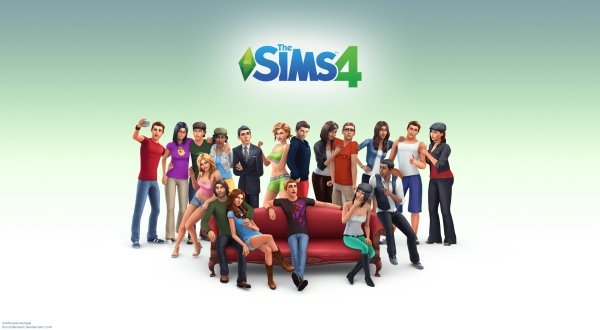
The Sims
A trio of EA titles, eh? Well, why not? With Command & Conquer and Mass Effect grabbing an entry, it only seemed fitting to discuss The Sims. This game came onto the seen at the turn of the century, pushing a very new and innovative idea of simulating AI to live out life like a normal human being. The game garnered tons of popularity and the series exploded with The Sims 2 and The Sims 3.
However, EA saw a money-mine with the series and following tons of spin-offs that never really gained traction on consoles, and too many expansion packs to keep track of for The Sims 2, things began to wane with The Sims 3 but loyal fans stuck on. Well, that loyalty was strained a little too far with The Sims 4 and fans began jumping ship on a soured experience that took massive steps back from The Sims 3 while working as a hub for a ton of potential microtransactions. The Sims 4 is still somewhat popular but don't expect The Sims 5 for a very, very long time.
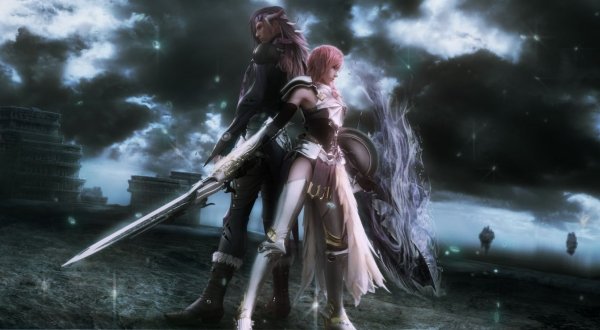
Final Fantasy
This is probably the one series that gamers know is well known for its earlier entries being some of the very best that gaming has to offer. During the 16-bit and 32-bit era it was Final Fantasy that was the JRPG to which many other RPGs were measured. Great storytelling, great graphics and an unbeatable soundtrack made it a tour de force.
There's no denying the kind of influence that Final Fantasy has had on the gaming industry, but at the same time there's also no denying the kind of negative influence that the gaming industry has had on Final Fantasy. Some of the most recent entries in the series apart from Final Fantasy XIV: A Realm Reborn has seen the brand devolve into copy-catting other AAA franchises and with very unbecoming results. The series has potential to return to form but it's had so many misses that gamers have no settled for just accepting a Final Fantasy game that doesn't suck.
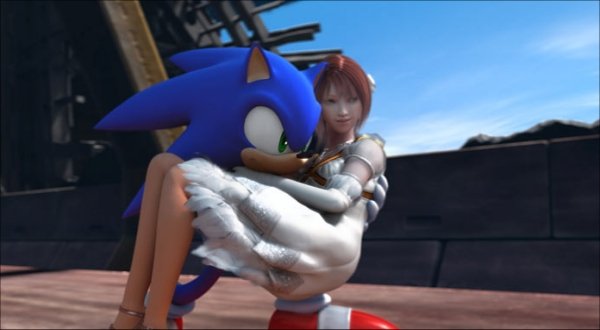
You probably thought Final Fantasy was the poster-child for series that got way worse, but I'm afraid that honor goes Sonic The Hedgehog. This is one of the most recognized brands in the entire world and yet is one of the most misused brands in the entire world. It's an amazing feat that Sega has managed to keep Sonic as popular as he is throughout the years despite releasing some of the most abysmal video games over the years.
Sonic stands in a league all his own as being attached to a company that has produced some of the most poorly designed and ill-thought out games across multiple generations. I would say that Sonic's decline first started showing cracks with Sonic Spinball, but he recovered himself with Sonic 3 & Knuckles; but after Sonic 3D it was a steady stream of more misses than hits. The interspecies romance was a turning point and from there Sonic had already gone over the edge. At this point it would probably be best if someone led Sonic behind a shed and comforted him while telling him to look at the flowers.
Staff Writer at CinemaBlend.

